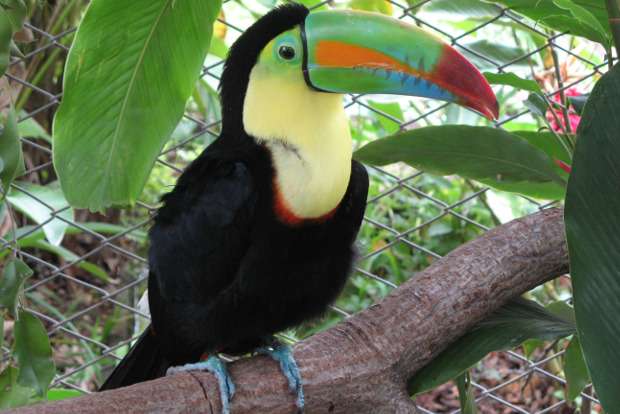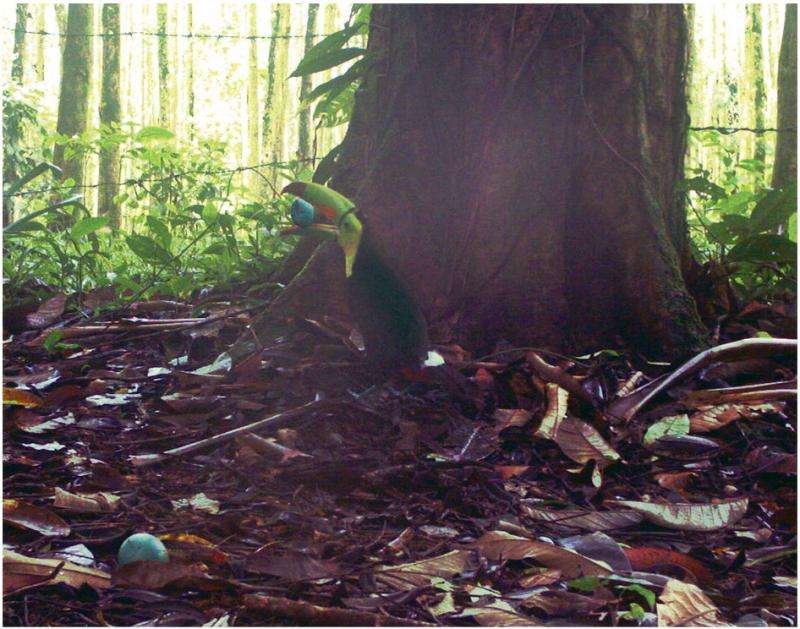Study reveals new insights into the dining habits of toucans

While Toucans' diets consist primarily of fruit, new research co-authored by a Virginia Commonwealth University biology major suggests the bird species' dining habits are actually more opportunistic than previously believed and include the eggs of ground-nesting birds.
Maria Vera, a student in the Department of Biology in the College of Humanities and Sciences, was part of a small team of undergraduate students and researchers who traveled to Costa Rica last summer for a nine-week National Science Foundation Research Experiences for Undergraduates program to conduct a nest predator study.
As part of the study, the team built artificial bird nests on the forest ground and monitored the fake nests with camera traps. The cameras picked up two species of toucan descending to the ground to consume the eggs, marking what the team believes may be the first report of the bird preying upon nests on the forest floor.
The findings suggest toucans may be more opportunistic eaters, particularly in disturbed or fragmented habitats where fruit trees are scarce.
The team's study, "Toucans descend to the forest floor to consume the eggs of ground-nesting birds," is published in the March edition of the journal Food Webs.
Along with Vera, the study's authors include Michael Cove, Ph.D., a postdoctoral fellow in the Department of Applied Ecology at North Carolina State University; Matthew Fagan, Ph.D., assistant professor in the Geography and Environmental Systems Department at the University of Maryland, Baltimore County; and undergraduate students and field partners Christopher Fernandez, Savanah Bird and Donald Jones.

"It's really hard to wrap my mind around being published as an undergraduate student," Vera said. "I am a pre-med student and if someone were to have told me at the beginning of my undergraduate studies that I would do as much research as I have done, I don't think I would have believed them. I am incredibly excited that the work was published and even more so that we may have more on the way. We gathered and analyzed so much data this summer."
The research process involved some "extreme fieldwork" in Costa Rica, Vera said, with a typical day requiring anywhere from two to eight hours in the field, hiking an average of 10 miles a day.
"It probably was not too bad for my partners who all had some ecology background as well as lots of hiking knowledge, but I definitely did not know what I was getting myself into," she said. "Lucky for me, I had an amazing mentor, Michael Cove, and awesome research partners who taught me so much along the way and did not laugh too much at me, as I was the queen of falling in the jungle."

More information: Michael V. Cove et al. Toucans descend to the forest floor to consume the eggs of ground-nesting birds, Food Webs (2017). DOI: 10.1016/j.fooweb.2017.01.003
Provided by Virginia Commonwealth University



















